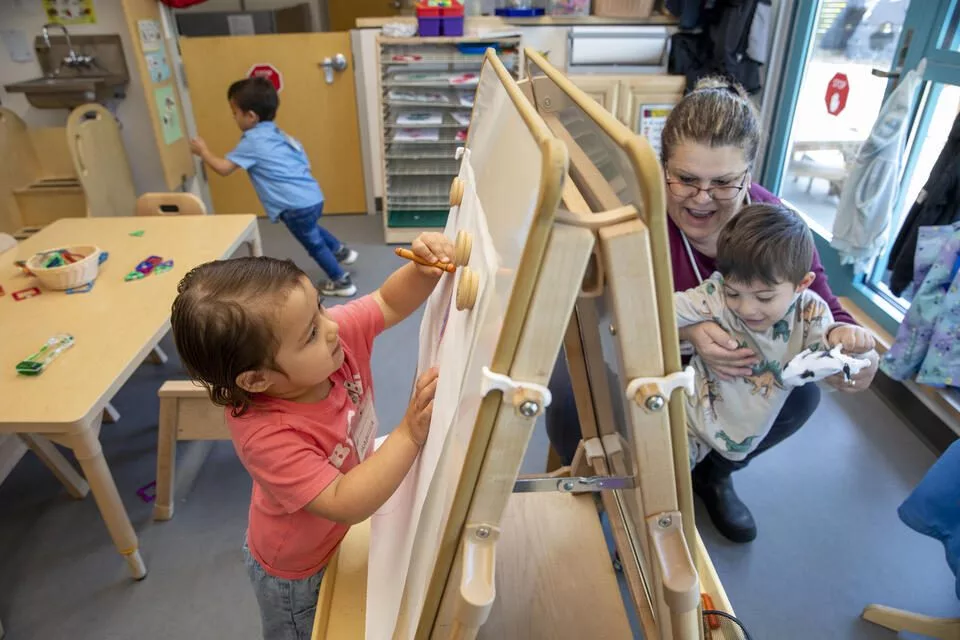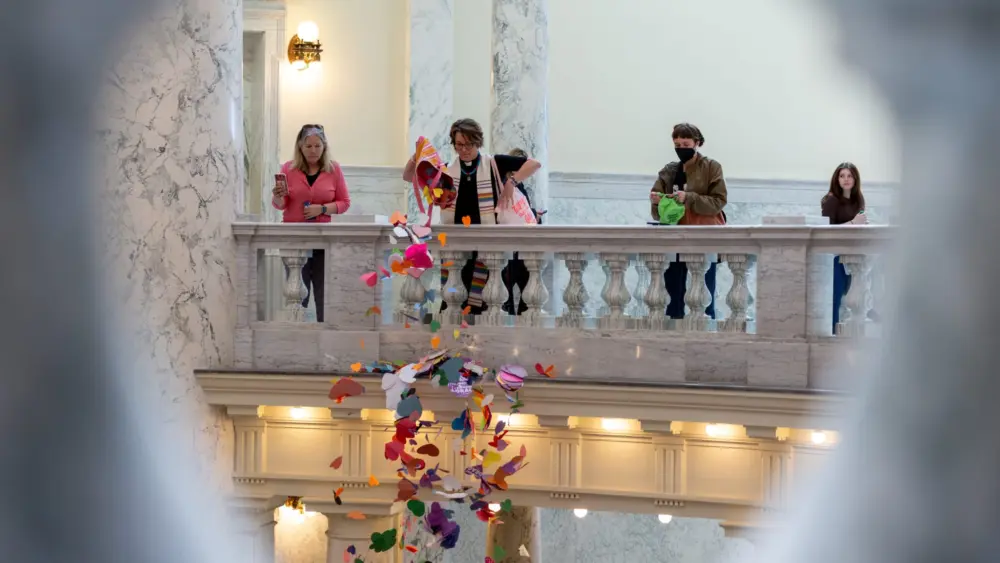MT VERNON, WA – “What is your top priority now?” That’s often the first thing a family is asked when they enter Head Start.
Some program participants need help with food assistance or finding stable housing. Others may want guidance in obtaining steady employment, or with securing dental care or vaccines for their kids. For many families, the free, federally funded preschool program is simply a safe, reliable place for their children to go to school.
“We offer someone to walk beside them in their own specific needs and their own specific goals,” said Mary Ellen Lykins, director of Head Start and ECEAP at Skagit Valley College in Mount Vernon. “It’s very high-quality learning for children and very powerful support for families.”
But the program faces a difficult road under the Trump administration. The first few months of the president’s second term have already disrupted grants and forced temporary closures and layoffs of administrative staff for Washington’s Head Start programs, amid confusing federal guidance. That’s led Washington early-education advocates and the American Civil Liberties Union to over recent decisions at the federal level.
Meanwhile, at the state level, Washington is poised to cut funding and delay a planned expansion of its early learning program, which is likely to worsen an already strained workforce and growing gap in access to early-childhood education.
Early learning providers are caught in the middle – anxious, scared and confused about what’s to come.
“There are a lot of questions and uncertainty,” said Jodi DeCesari, executive director at the Okanogan County Child Development Association. “It creates a lot of fear for these families.”
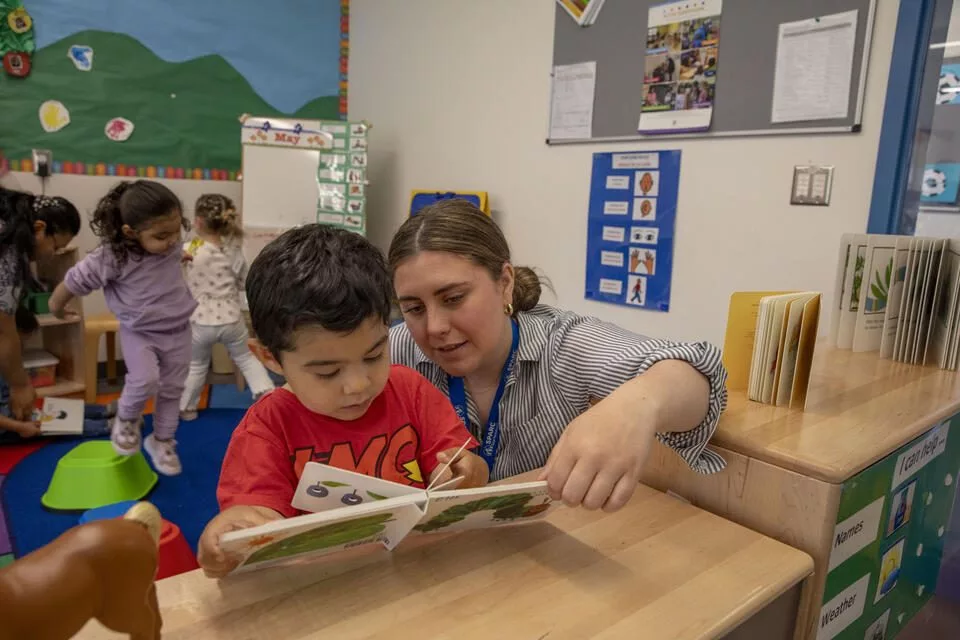
(Ting-Li Wang for Cascade PBS)
Funding uncertainties
Last month, the Washington Association of Head Start and Early Childhood Education and Assistance Program, along with Head Start associations and parent groups across the country, filed a lawsuit against several Trump agencies and officials arguing that the administration’s efforts to cut funding, lay off federal workers and implement bans on diversity, equity and inclusion programs are violating the law. The groups are represented by the American Civil Liberties Union, the ACLU of Washington, the ACLU of Illinois and the Impact Fund.
The lawsuit argues that the federal government’s recent actions “have impeded the ability of Head Start agencies to provide services and pose a substantial risk of irreparable and ongoing harm to the hundreds of thousands of children and families served by Head Start each year.”
Head Start, a Civil Rights-era program, serves the country’s lowest-income families, including those who are unhoused, need dual language support or have disabilities. The program provides early learning as well as support services to help families access housing, food, employment and education.
In Washington, Head Start serves about 15,000 children.
Last month, about half of the Head Start regional offices across the country, including the one in Seattle, closed and laid off staff. Regional offices assist providers with administrative support, guidance on federal regulations and distributing grants. Their closure left providers with nowhere to turn for help with submitting grant applications or receiving approval for basic requests, like purchasing a new fridge, said Joel Ryan, executive director of the Washington State Association of Head Start and ECEAP.
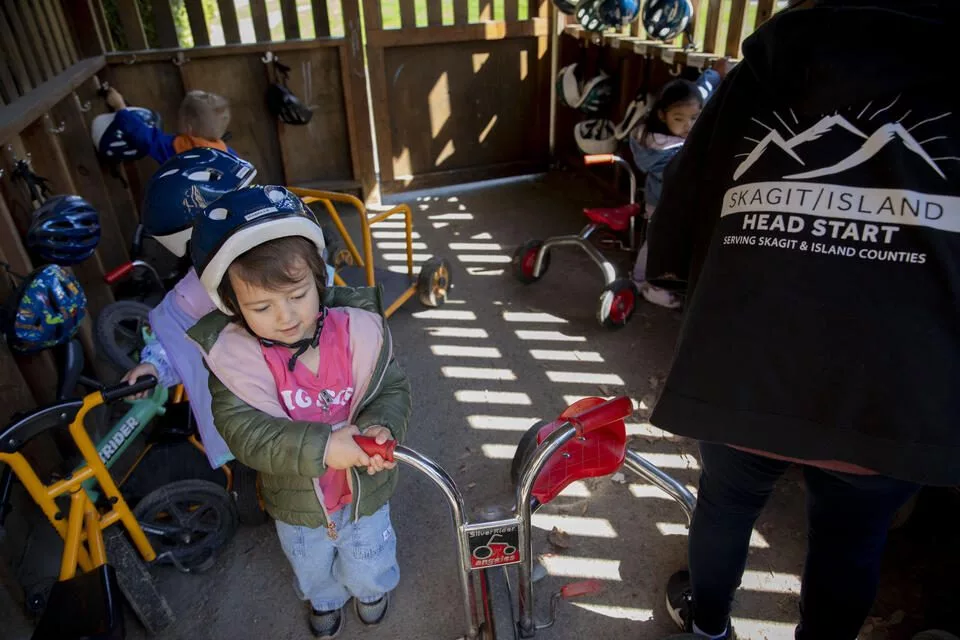
Also last month, a Head Start classroom in Central Washington temporarily closed when its federal grant funding arrived late. About 400 children did not have access to services in the interim.
That classroom is back open, and current budget proposals from the Trump administration do not slash funding to Head Start.
But another provider in Central Washington may lay off nearly 200 workers next month because their contractor has not yet received its official federal funding notice, according to The Seattle Times.
“It’s a very high-stakes situation, and that’s why we felt like litigation was the only option to resolve this,” Ryan said.
Though programs are currently receiving their scheduled funding, the uncertainty has a lasting effect, argued ACLU attorney Jennesa Calvo-Friedman. She said she has heard from providers who say they are losing staff who may want a more stable job.
The lawsuit argues that without intervention, more programs will close, and fewer children and families will have access to services that help them thrive.
In rural Okanogan County, DeCesari said Head Start is essential to filling a gap in a part of the state where early learning and child care opportunities are dwindling.
“What a loss we’ll see in the community, a generational loss,” she said.
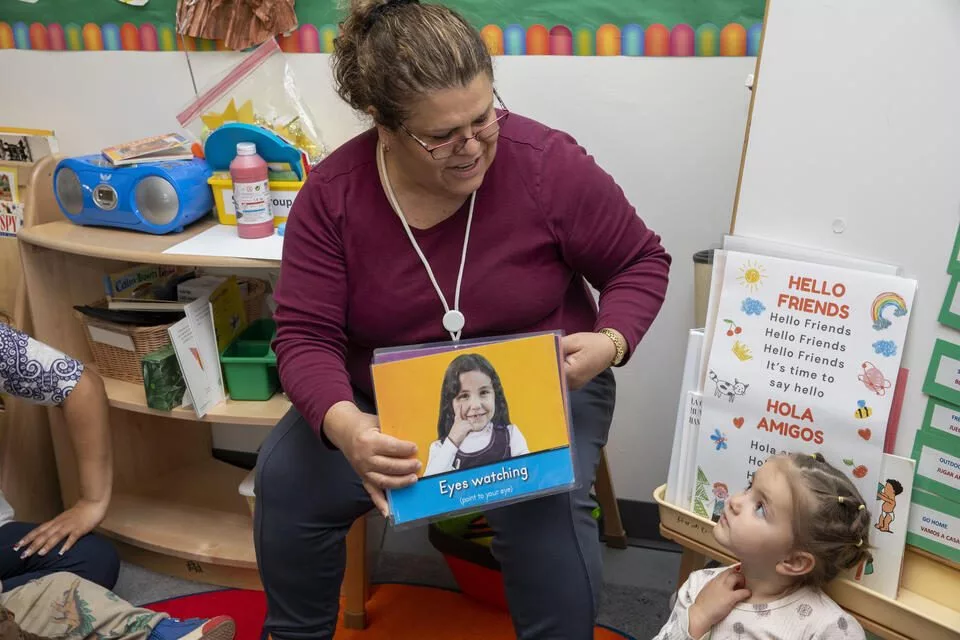
‘No-win situation’
The lawsuit also focuses on the legality of Trump’s executive orders aiming to eliminate diversity, equity and inclusion programs. Calvo-Friedman argues that the executive orders were vague, subjective and difficult to enforce.
For Head Start providers, eliminating diversity initiatives eliminates the goal of the program, Ryan said.
The basis of Head Start is that it helps children who come from different backgrounds, offering language support and inclusion for kids with disabilities, Ryan said. That could include offering culturally relevant meals or prioritizing non-English speaking teachers and interpreters.
“All of the things we are required and expected to do rest on a foundation of valuing and respecting diversity, seeking equity, understanding the powerful impact of inclusion,” Lykins said.
Abandoning those guidelines can put a program at risk of losing funding, Ryan said, but some worry that following them goes against the administration’s orders.
“It’s a no-win situation because you either have to deprive the civil rights and educational outcomes of Head Start kids and families to follow Trump’s rules, or you risk being put out of business,” Ryan said.
In their grant applications, Lykins said she now struggles to explain how they plan to follow the requirements of the program without using words that might make them a target when talking about diversity and equity. She said there’s little guidance on what to say.

(Ting-Li Wang for Cascade PBS)
State challenges
Amid confusion about the status of Head Start funding, Washington state is also cutting funding for its early learning programs.
The state’s early-learning program, known as the Early Childhood Education and Assistance Program, offers services similar to those provided by Head Start. The state program was set to become an entitlement in 2026.
But as lawmakers faced a multibillion-dollar budget hole over the next four years, they chose to delay the expansion. They also eliminated funding for a free early-learning program for children from birth to age 3, effectively ending support for the 200 low-income families who use it.
Lawmakers also cut some half-day preschool slots that were currently unfilled.
DeCesari said the state cuts could mean reduced access for families and diminished staffing. Between uncertainty around Head Start and state cuts to early learning, potential early-learning workers could be dissuaded from pursuing jobs in the industry, she said, and programs are already dealing with staffing shortages.
Lykins said a thriving child care and early-learning system is essential to the state’s economy and to young people’s education.
It should have been the first thing to be protected from further cuts, she said, “but when the chips are down, it feels like this is always the first thing to get hit.”
Though Ryan wasn’t surprised by the state cuts, they came as a disappointment.
Coupled with the federal funding threats, low-income families in Washington are in a very precarious position, he said. If Head Start programs close, there won’t be enough space in state programs to take in families who can no longer rely on Head Start.
“The state is taking a fairly big step backward when it comes to early learning,” Ryan said. “We’re in a very difficult spot.”
Visit cascadepbs.org/donate to support nonprofit, freely distributed, local journalism.

